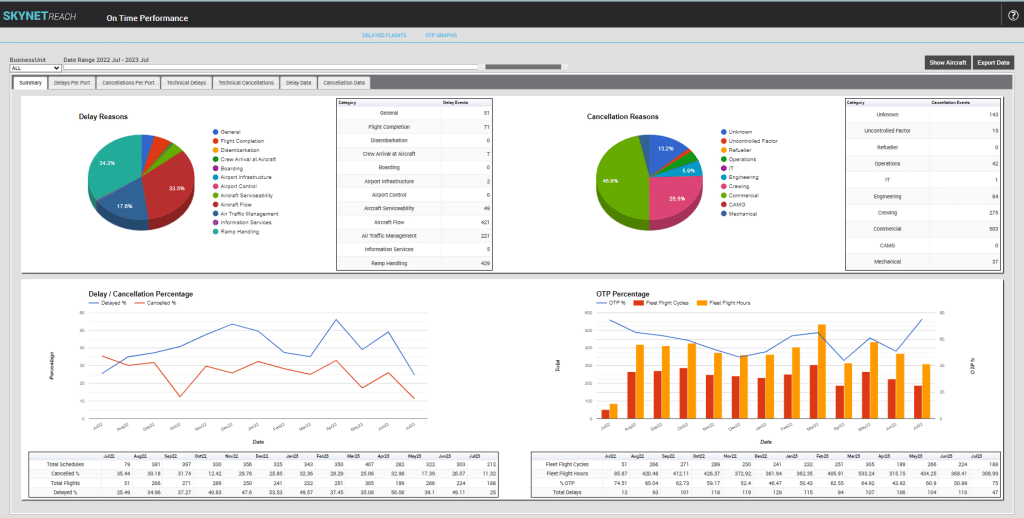The Operations Control Centre (OCC) serves as a central hub for managing and coordinating various aspects of airline operations. To effectively fulfil its responsibilities, an OCC should have the following attributes:
1. Robust Communication and Coordination
The OCC should have seamless communication channels established with relevant stakeholders, including flight crews, ground handling teams, maintenance personnel, air traffic control, and other relevant departments. Effective coordination and collaboration among these parties are essential for efficient operations.
2. Real-time Monitoring and Situational Awareness
The OCC should have advanced monitoring systems and tools to track flight status, weather conditions, and air traffic flow management, among others, in real-time. This enables the OCC to maintain situational awareness, be safety aware, identify potential disruptions or issues, and make informed decisions promptly.
3. Decision Support Systems
The OCC should leverage decision support systems that provide comprehensive data analysis and modelling capabilities. These systems can assist in assessing operational scenarios, evaluating alternative courses of action, and supporting data-driven decision-making processes.
4. Operational Planning and Optimization
The OCC should be equipped with tools and capabilities for flight planning, flight following, disruption management, and resource allocation. These capabilities enable the OCC to optimise flight schedules, fuel consumption, crew assignments, and other operational aspects to maximise efficiency and, importantly, minimise costs.
5. Contingency Management
The OCC should have well-defined contingency plans and procedures to handle disruptions, such as aircraft diversions, adverse weather conditions, or unexpected events. This includes having backup options for crew assignments, alternative flight plans, and effective communication protocols to manage disruptions smoothly.
6. Regulatory Compliance
The OCC should ensure compliance with relevant aviation regulations and procedures. This includes adhering to safety guidelines, flight dispatch requirements, air traffic control instructions, and other operational standards set by aviation authorities.
7. Data Analysis and Reporting
The OCC should have robust data analysis capabilities to monitor key performance indicators, identify trends, and generate reports on operational performance. This helps in evaluating operational efficiency, identifying areas for improvement, and facilitating data-driven decision-making.
8. 24/7 Operations and Support
Given the nature of airline operations, the OCC should operate around the clock, ensuring continuous monitoring and support for flights and operations. This includes having appropriately staffed shifts and contingency plans to handle unexpected situations during non-standard hours.
9. Flexibility and Adaptability
The OCC should be adaptable to changing operational conditions and have the flexibility to adjust plans, schedules, and resources accordingly. This allows the OCC to respond to disruptions, changing demands, or unforeseen circumstances effectively.
10. Highly Skilled and Trained Personnel
The OCC requires a team of skilled professionals, including flight dispatchers, operations controllers, crew controllers, meteorologists, and other relevant roles. These individuals should possess in-depth knowledge of aviation operations, regulations, and procedures and undergo continuous training to stay updated with industry developments.
By incorporating these attributes, your OCC can effectively manage and control airline operations, ensure safety, optimise resources, and respond to operational challenges with efficiency and effectiveness.



